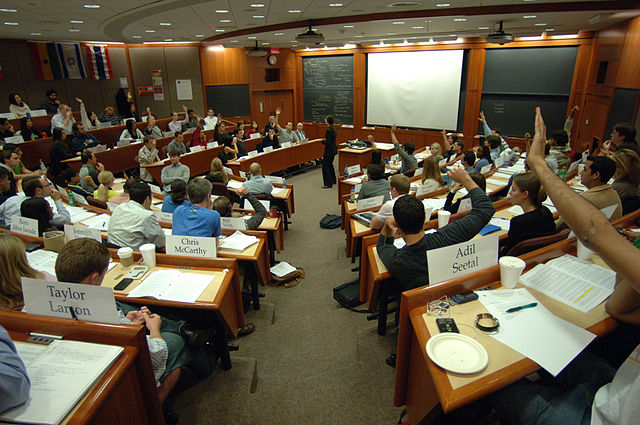Too many people do not understand the difference between education and learning. ‘Education’ is defined by Oxford Dictionary as ‘the process of receiving or giving systematic instruction’. On the other hand, ‘learning’ is ‘the acquisition of knowledge or skills through study, experience, or being taught’.
Those, my friend, are two contrasting processes.
If you attend classes, do assignments and ace examinations, you do well in your education. You have a good GPA and a pretty certificate. But are they enough? Most people undergo education, but only some truly learn. By essence, learning surpasses formal education; it is gained through extracurricular activities, going beyond the classrooms and of course, doing internships.
My first internship was with an English-language newspaper in Jakarta. Until then, I did not thoroughly understand what an internship means to college students – especially in terms of learning experience, industry insights and networking. However, looking back now, deciding to spend my summer break at the newspaper company was one of the best decisions I have ever made throughout my university career. Not only did it provide me with a better understanding of journalism and a real-world application of what I learnt in classes, but it also taught me many lessons which I could not get in formal education. As clichéd as it may sound, my experience there allowed me to see the world in different perspectives, as I was assigned to write about a variety of subject matters, interview some of the most interesting individuals and attend eye-opening events.
In many aspects, my first internship served as a stepping stone towards my future internships. I finally realised the value of internships and how it can complement my university education. I then went on to intern in advertising, public relations and new media agencies. These experiences allowed me to better understand my strengths, weaknesses and opportunities for improvements. Throughout my internship experiences, I was able to get benefits in taking the initiative to intern at a target industry or company – including meeting inspiring mentors, understanding how a department works, getting a better grasp of an industry, gauging passion for a function, and in some cases, securing a return offer.
A few days ago, I was talking with a friend who regretted his lack of internship experience during his undergraduate degree.
“It is difficult for me to compete for full-time positions,” he said.
“Although I may have an excellent GPA and ‘brand-name’ schools, I lose out in terms of experience. Many students and graduates have interned at big companies, including those in Fortune 500.”
I initially thought it would not be a big issue given his academic credentials. However, after thinking about it again, I realized I was wrong. As many have said it, an internship is basically an extended job interview – it is a way for employers to know your real ability. There has been an ongoing debate about ‘skills gap’, a term to describe a phenomenon where employers are not able to find talents who possess key skills required for jobs, especially soft skills such as persistence and grit. As a result, employers need to see more concrete proof in order to be convinced of a graduate’s credentials.
Looking at internship experiences is one commonly used way. According to a survey by Harris Interactive and Chegg, 80% of employers require new graduates to have internship experience. On the other hand, 70% of students who completed paid internships consider themselves ready for the workforce, while the numbers are 58% and 44% for those who completed unpaid internships and did not intern respectively.
In fact, I have heard many stories where my friends found it easier to find jobs after graduation due to their previous internships. Many of them received return offer from their host companies. Others met mentors and good friends who give them invaluable advice and help throughout their career.
As an inspiring mentor once aptly put it, it is no longer enough to be good in today’s world, but one has to go beyond expectations. While your university years might be the best time of your life, it is good to remember that your university and early career years is an important period of your life, both personally and professionally. Make full use of your time – learn new subject matters, create things and go out to the real world.
Do not be a student, be a holistic learner.
Photo by Harvard Business School.










Hello Indonesia Mengglobal…
aku masih kuliah jurusan Sastra Inggris tingkat III, kira kira ada gak ya, universitas yang jurusannya tentang linguistik atau sastra lainnya?